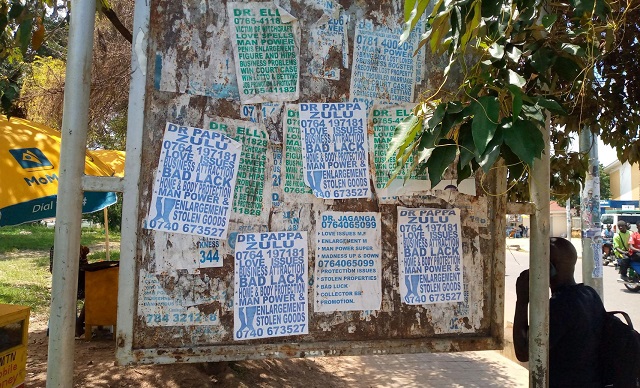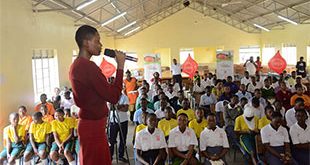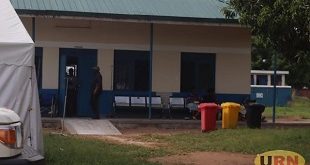
Arua, Uganda | THE INDEPENDENT | Arua District Chairperson Alfred Okuonzi has issued a stern warning to local media houses against promoting witch doctor services, asserting that such content fosters insecurity within communities. Speaking at a stakeholders’ meeting on broadcasting standards at Heritage Courts Hotel in Arua City, Okuonzi highlighted the detrimental impact of hosting witch doctors or airing ads that promote their services.
Advertisements by self-proclaimed “doctors” are pervasive in Arua City, commonly found on tree stems, electric poles, and billboards, each listing a range of ailments they claim to “treat” or items they promise to “recover,” often including phone numbers. Some radio stations have been accused of further promoting these figures, which, according to Okuonzi, mislead vulnerable members of the community.
Marissa Doreen, a resident of Arua City, supported Okuonzi’s concerns, stating, “It has misled very many women to go into witchcraft in the hope of getting back their husband or protecting their marriage. Whatever advert you are airing, make sure it does not destroy the community, because upbringing a family needs both the father and mother.”
Daniel Baitwababo, Senior Content Regulation Officer at the Uganda Communications Commission (UCC), advised broadcasters to distinguish between witch doctors and certified traditional healers. He explained that, unlike witch doctors, authorized traditional healers are permitted to advertise their services but only after receiving approval from the National Drug Authority.
Baitwababo further cautioned the public against individuals claiming to cure terminal diseases, like HIV and cancer, emphasizing that these unproven claims could lead to harmful outcomes.
This issue is not new. In 2018, the UCC revoked the licenses of 23 radio stations for broadcasting witchcraft-related content, including two stations in the West Nile region. Then, in 2019, the Ugandan parliament passed the Traditional and Complementary Medicines Bill, which restricts advertisements by traditional practitioners unless they are authenticated by a regulatory council.
The bill also prohibits traditional and complementary medicine practitioners from using titles associated with modern medicine, such as “doctor” or “nurse,” unless they hold valid qualifications. In Nebbi, the Resident District Commissioner (RDC) Robert Abak voiced a similar warning to members of Village Savings and Loans Associations (VSLAs), advising them against consulting witch doctors to recover stolen funds.
Abak cited examples where savings groups, upon losing money to theft, opted to hire witch doctors before even notifying the police, wasting resources without recovering their funds. “When money is stolen from groups’ saving boxes in the community, the affected group members don’t even report the case to police but they rush to a witch doctor to recover the stolen money but, when they fail, they come back to police,” Abak explained.
Patrick Okumu, a member of the Merber Savings Group in Nebbi town, shared his experience: “We spent a lot trying to recover our stolen money and even the group brought in a police sniffer dog and the suspect was arrested but still the 46 million went unrecovered.”
To address security concerns related to VSLA funds, Post Bank, in partnership with the West Nile Private Sector Development Promotion Center (WENIPS), is implementing a digital transformation initiative. This partnership aims to integrate over 7,500 SACCOs and VSLAs into the Wendi mobile wallet platform, supporting financial inclusion and secure savings.
Patrick Okwi Osakan, Regional Distribution Officer at Post Bank for Northern and West Nile, stated that the mobile wallet service allows members to access financial services on either smartphones or basic mobile phones, even without a traditional bank account.
******
URN
 The Independent Uganda: You get the Truth we Pay the Price
The Independent Uganda: You get the Truth we Pay the Price



